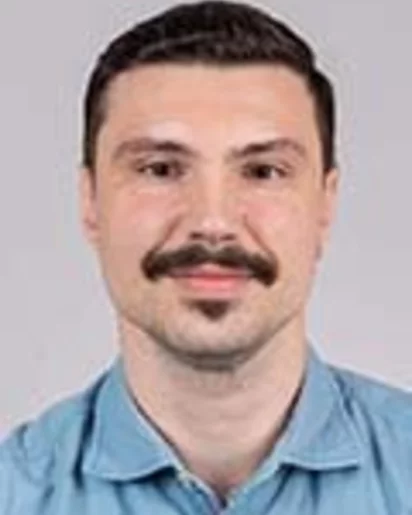Research Interests
I use and improve atmospheric models, with a combination of machine learning, optimization techniques and field measurements, with the goal of studying the impact of emission reductions on air quality and health.
Research at PSI
I joined PSI in May 2023. Previously involved in energy transition pathways in the US, with air quality benefits as the driver, I am currently working at using air quality models to simulate net-zero emission scenarios for Switzerland, with the goal of achieving zero greenhouse gas emissions by 2050. This is done under the collaborative effort of the Center of Excellence established under the SCENE project by the institutes comprising the ETH domain (PSI, EMPA, WSL and Eawag), along with experts from ETH and EPFL. The SCENE project follows a holistic approach of working on multiple ends of the problem, from carbon sequestration and capture, to low carbon energy systems. I utilize air quality modeling to study the impact of the above interventions on future years and gauge the cobenefits achieved due to CO2 reductions, such as decreased particulate matter and surface ozone levels, that in turn yield health benefits due to reduced pollution exposure. Within that context, I am also using the results from SCENE to drive further research such as:
- Using machine learning techniques to improve model predictions
- Studying the spatial distribution of adverse health effects from air pollution
- Developing a database for European ambient observation data for model evaluation
Past Work
Before the joining PSI and during my 10-year tenure at the Georgia Institute of Technology, I worked at quantifying the carbon emissions, costs, and air quality outcomes of electricity sector policies that are relevant to US national discussions, under a multi-institutional research initiative with collaborators from Syracuse University; the Harvard T.H. Chan School of Public Health; and Resources for the Futures. The Clean Energy Futures looked into 10 policy approaches to reducing carbon dioxide emissions from the electricity sector.
We used outputs from the Integrated Planning Model (IPM) to estimate changes in electricity generation, carbon, co-pollutant emissions, and system costs from 2025 to 2050 compared to a no-policy reference case. Emission estimates were used in the Community Multiscale Air Quality (CMAQ) model to simulate changes in air quality, including concentrations of fine particulate matter and ozone, across the U.S. resulting from these policies.
An analysis of an illustrative 80×30 clean electricity standard (CES) by the Clean Energy Futures project shows that achieving the Biden Administration’s clean electricity goal through a CES has modest costs and large benefits. Our analysis was the first to map air quality and related health benefits for an 80×30 CES. The benefits are widely distributed across the U.S. and that the illustrative 80×30 CES has the largest climate & health related net benefits of eight policies examined. The present value of the estimated climate benefits through 2050 (637 billion USD) outweigh the costs (342 billion USD). This 80×30 CES would also prevent an estimated 317,500 premature deaths between now and 2050 and generate estimated present value health benefits of 1.13 trillion USD due to cleaner air, bringing the estimated present value net benefits to 1.43 trillion USD for 2020 to 2050.
This work has gathered significant media attention both nationally and internationally and has been featured in various outlets. More information can be found at https://cleanenergyfutures.syr.edu/
Doctoral and Postdoctoral Work
During my PhD and postdoctoral periods, I worked on elucidating the interactions between anthropogenic emissions and biogenic volatile organic compounds that lead to the formation of Secondary Organic Aerosol (SOA), which, is a major contributor on PM2.5 especially in the Southeast US. In particular, through my work, many chemistry updates have been integrated into the Community Multiscale Air Quality (CMAQ) model, coupled with a series of sensitivity studies, and have been used to determine crucial model parameters for the formation of SOA, so as to improve the predictive ability of the entire model.
I also looked into the impact of emission controls on air quality over the decade 2001-2011. My work led to the discovery of major biases in CMAQ that have a profound impact on aerosol pH, leading to simulations that disagree with results from field campaigns and measurements. Such biases, if not corrected, lead to erroneous predictions (for example substitution of sulfate aerosol with nitrate – a far more harmful species for human health) and can have serious implications on regulatory decisions. With the use of thermodynamic models and CTM results, we were able to pinpoint the biases on the incorrect distribution of dust species and to quantify/cancel their impact.
Finally, I worked on quantifying marginal (monetary) societal health benefits of transportation emission reductions in the United States and Canada using state-of-science sensitivity/adjoint models. More specifically, the project had the following goals:
a) Create a database of location-specific marginal damages or benefits-per-ton (BPTs) for emissions in Canada and the U.S.
b) Estimate uncertainties associated with BPTs
c) Conduct sensitivity analysis of BPT estimates with respect to a number of assumptions
d) Produce a database for air pollution health co-benefits of combustion-based CO2 reduction
e) Provide vintage-based per-vehicle damage estimations


